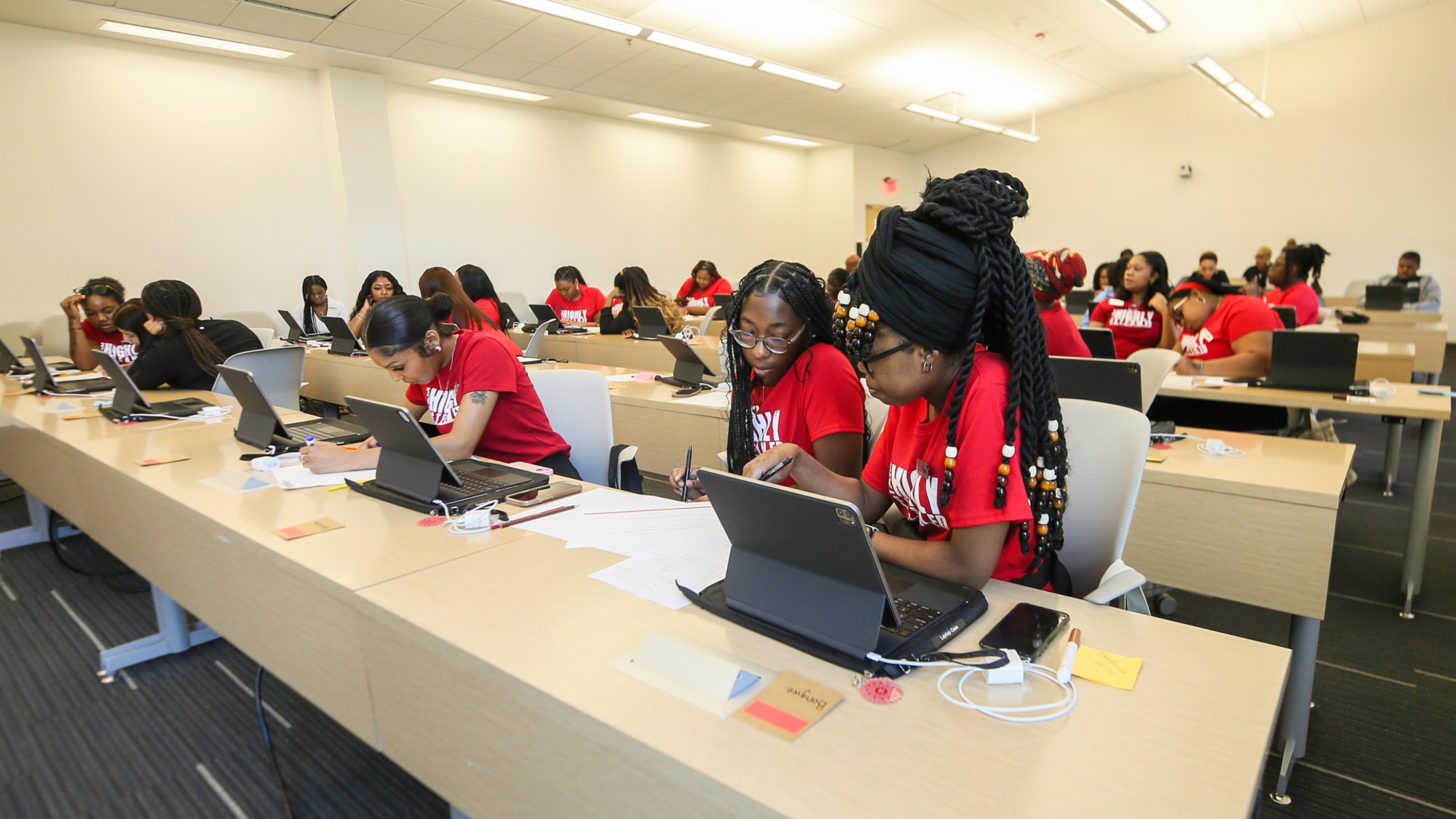We should chop America up into 7 different countries. Seriously.
The fantasy of the 'United' States is dead. It's time to divide them.

A free daily email with the biggest news stories of the day – and the best features from TheWeek.com
You are now subscribed
Your newsletter sign-up was successful
Look, we had a good run.
Well, maybe "good" isn't quite the right word ... but certainly it's been interesting. These United States were a grand experiment. But the experiment has gotten out of hand. It's time to peacefully dissolve the union.
I know, I know. This is not what good Americans are supposed to suggest. "Four score and seven years ago" and all that. But to borrow a lesser-known phrase from that brief address, it seems to me we have tested whether this nation "can long endure," and increasingly it is clear it cannot. It's just not working. Do you really disagree? Do you like the way things are?
The Week
Escape your echo chamber. Get the facts behind the news, plus analysis from multiple perspectives.

Sign up for The Week's Free Newsletters
From our morning news briefing to a weekly Good News Newsletter, get the best of The Week delivered directly to your inbox.
From our morning news briefing to a weekly Good News Newsletter, get the best of The Week delivered directly to your inbox.
We are fresh off a midterm election which has guaranteed two years of gridlock and rancor. But the issues that animated this campaign season are in no sense resolved. David Brooks' recent diagnosis of "two electorates" conducting entirely separate conversations and motivated by entirely different primal fears remains equally perceptive. Mutual partisan hatred is still nearly total. It is still the case that the sort of person who would attend a Trump rally and one who joined the Women's March do not wish to share a country with each other.
They may not explicitly say so, but they do come very close. How else should we interpret, "If you don't like it, leave," or, "If [candidate] wins, I'm moving to Canada"? However unserious, these are basically expressions of a desire for separate nations.
So ... what if we did that? What if we stopped demanding that people with fundamentally different value systems who live nowhere near each other constantly fight about politics so they can develop temporary political compromises that are unsatisfactory to all?
That sounds nice, doesn't it? I suggest it's appealing because this nation is just too big to function. We have 325 million people flung across 3.8 million square miles. A majority will always feel forgotten by Washington, because they are. Consider that the House of Representatives has one member for every 747,000 Americans. In the first Congress, that ratio was 57,000 to one. One person may be able to fairly represent 57,000 others, but I doubt it. Representing 13 times that is impossible.
A free daily email with the biggest news stories of the day – and the best features from TheWeek.com
And even if real representation were feasible at this scale — even if we enormously expanded the number of seats in Congress and made other major structural reforms to how our elections work — that would only highlight the depth of our disagreements. What strikes someone in California or Vermont as a necessary freedom may herald the breakdown of society in Mississippi or Utah. One American's noble mission to spread democracy is another's war crime.
But practically, could we really divide the United States of America? How would it work?
A quick Google search will summon proposals for slicing the United States into two, five, seven, a different seven, eight, nine, 11, 12, or 13 smaller nations. I don't have a particular favorite, though I suspect simply cutting the country in half risks unnecessary conflict without solving many of the problems of size.
What sort of division we pursue is crucial. Many of those maps make their cuts to give each new nation a population equal with all the rest. That has a certain tidiness, but it is politically unwise. Splitting up the union should prioritize and honor regional differences, even if that means ending up with countries of unequal proportions. Electoral maps can be deceiving, but they offer some basic direction in this regard. States need not stay intact, though that would be more convenient for maintaining local governance structures.
On a smaller scale, many of the maps listed above chop up the Black Belt, which strikes me as a mistake. Likewise, while several recognize unique cultural influences along the Gulf Coast, only one notes the concentration of Mormon communities in and near Utah, and none to my knowledge do anything to acknowledge Native American tribal lands. These are the sorts of details a workable split must incorporate.
This may strike you as a defeatist proposal. Perhaps, after nearly 250 years, you believe the union is inherently worth preserving. But what are we really trying to keep? The vague and frankly outmoded idea that "America" is the most important nation on Earth, and must be the most powerful? This is a puerile fantasy. And splitting up won't undo our history together or cause us to forget our culture. If anything, it might stave off some of the bland national homogenization that threatens to blot out distinct features of our most interesting places. Having, say, seven nations of America wouldn't make us any less American in any way that really matters.
What it would do is make truly representative and responsible government significantly more possible. It would cut down on political anger and argument, allowing us to work within a smaller range of regional perspectives. We could find nuance in fresh solutions that our hateful red vs. blue fights cannot permit. We could preserve the good things about the United States while losing the bitter and unwieldy national politics which almost none of us can meaningfully influence.
Ironically, chopping up the United States could make us more united.
Bonnie Kristian was a deputy editor and acting editor-in-chief of TheWeek.com. She is a columnist at Christianity Today and author of Untrustworthy: The Knowledge Crisis Breaking Our Brains, Polluting Our Politics, and Corrupting Christian Community (forthcoming 2022) and A Flexible Faith: Rethinking What It Means to Follow Jesus Today (2018). Her writing has also appeared at Time Magazine, CNN, USA Today, Newsweek, the Los Angeles Times, and The American Conservative, among other outlets.
-
 How the FCC’s ‘equal time’ rule works
How the FCC’s ‘equal time’ rule worksIn the Spotlight The law is at the heart of the Colbert-CBS conflict
-
 What is the endgame in the DHS shutdown?
What is the endgame in the DHS shutdown?Today’s Big Question Democrats want to rein in ICE’s immigration crackdown
-
 ‘Poor time management isn’t just an inconvenience’
‘Poor time management isn’t just an inconvenience’Instant Opinion Opinion, comment and editorials of the day
-
 ‘The forces he united still shape the Democratic Party’
‘The forces he united still shape the Democratic Party’Instant Opinion Opinion, comment and editorials of the day
-
 ‘Those rights don’t exist to protect criminals’
‘Those rights don’t exist to protect criminals’Instant Opinion Opinion, comment and editorials of the day
-
 ‘The mark’s significance is psychological, if that’
‘The mark’s significance is psychological, if that’Instant Opinion Opinion, comment and editorials of the day
-
 ‘The West needs people’
‘The West needs people’Instant Opinion Opinion, comment and editorials of the day
-
 ‘The censorious effect is the same, even if deployed covertly’
‘The censorious effect is the same, even if deployed covertly’Instant Opinion Opinion, comment and editorials of the day
-
 Vietnam’s ‘balancing act’ with the US, China and Europe
Vietnam’s ‘balancing act’ with the US, China and EuropeIn the Spotlight Despite decades of ‘steadily improving relations’, Hanoi is still ‘deeply suspicious’ of the US as it tries to ‘diversify’ its options
-
 ‘The sport is still run on a shoestring’
‘The sport is still run on a shoestring’Instant Opinion Opinion, comment and editorials of the day
-
 ‘We know how to make our educational system world-class again’
‘We know how to make our educational system world-class again’Instant Opinion Opinion, comment and editorials of the day
